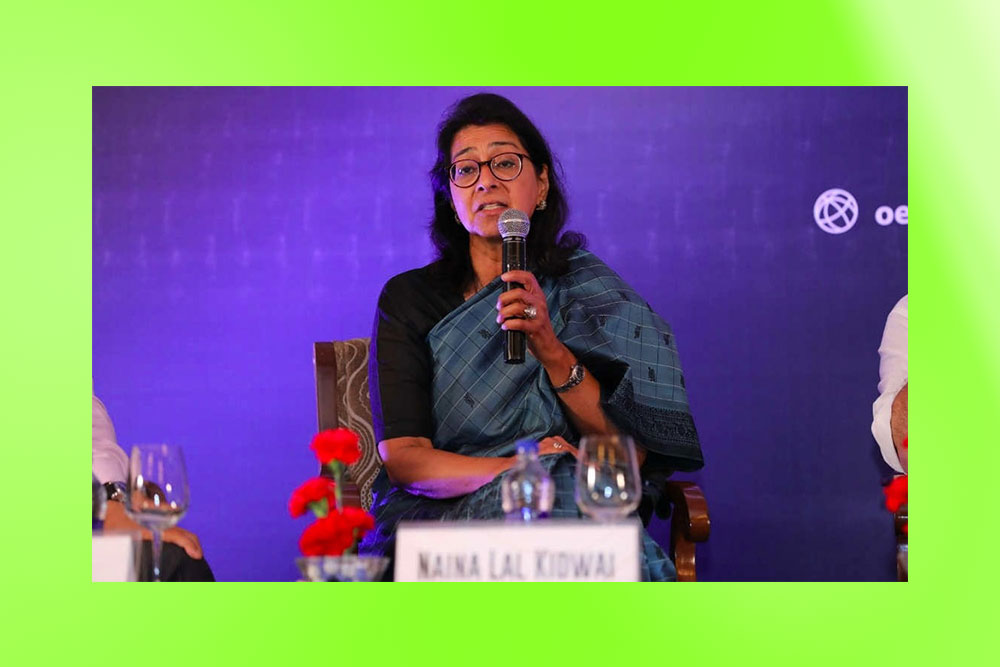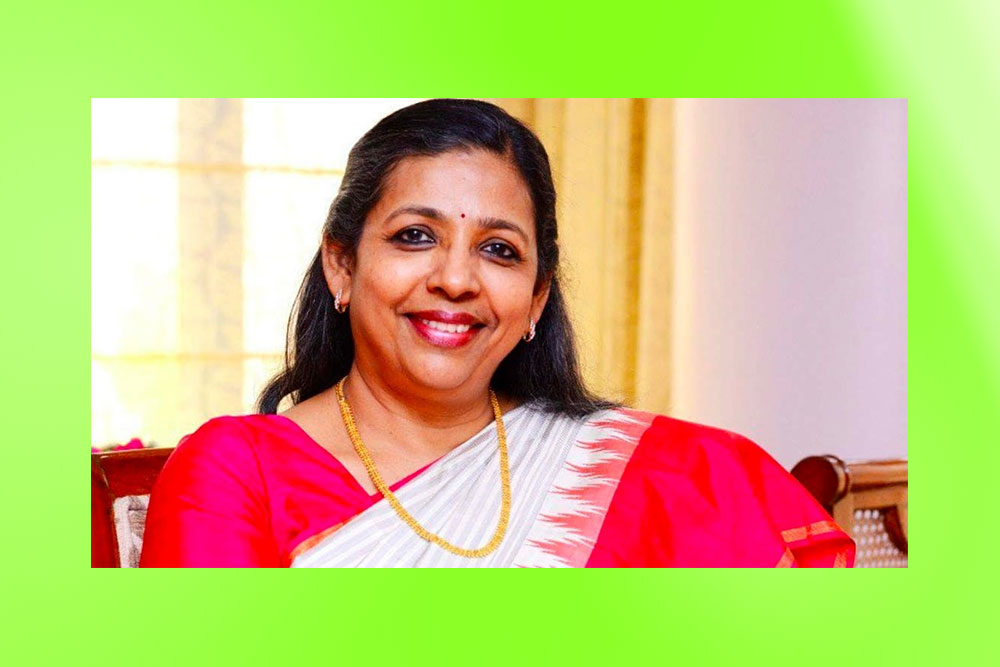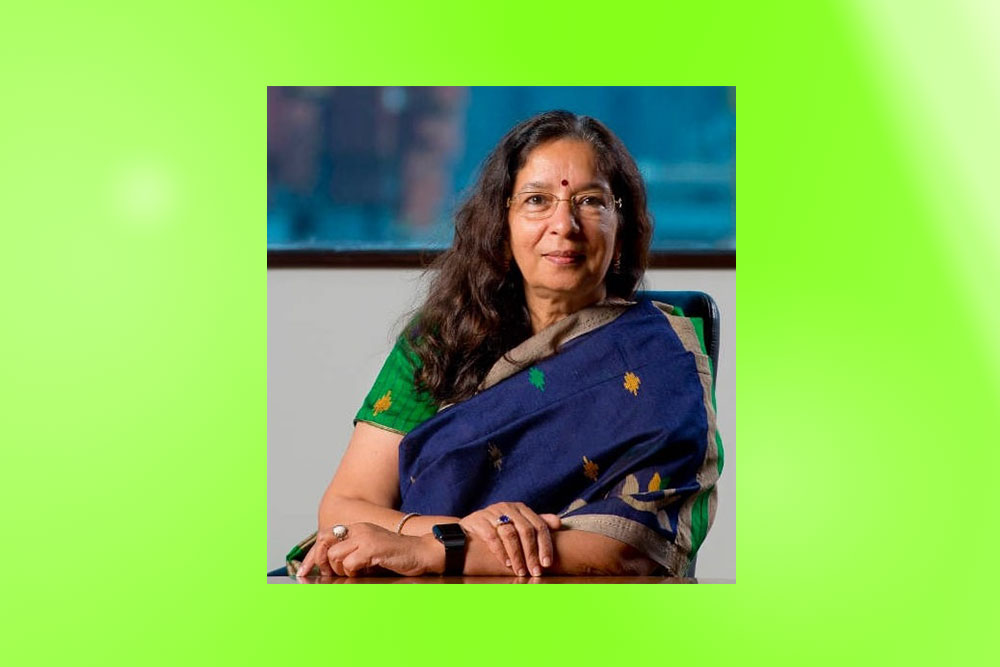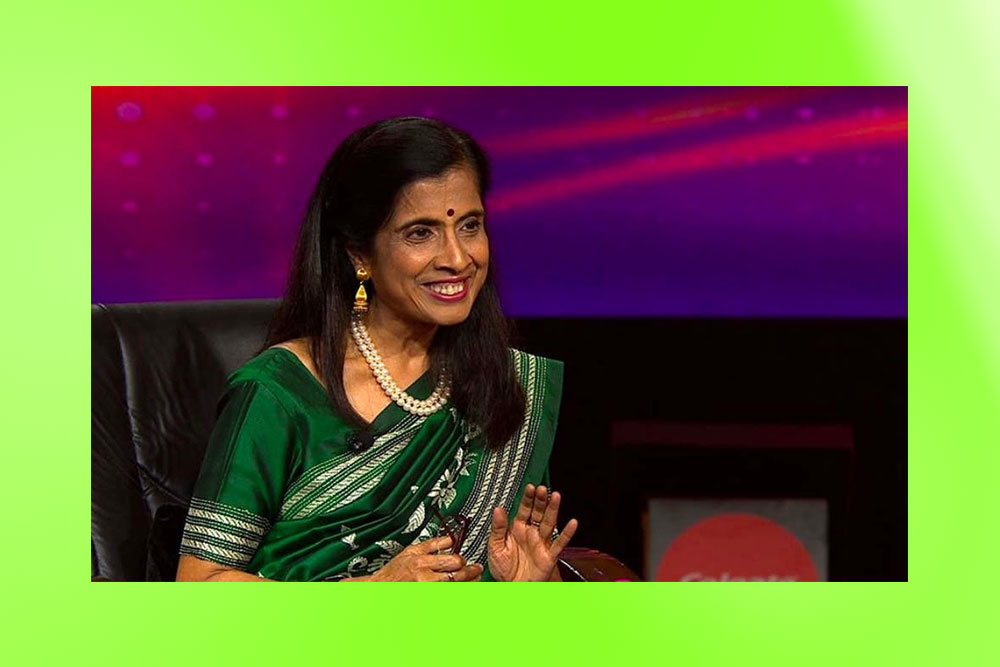The world has finally realised that gender parity or equality in all fields is a crucial parameter of growth for not only developed economies but also developing ones like India. The World Economic Forum’s Global Gender Gap Report 2021, which was released recently, reveals that over the last year, India has slipped 28 places to be ranked 140 among 156 countries. Instead of being able to bridge the divide, India’s gender gap has widened by 62.5 per cent, mainly due to inadequate representation of and leadership roles for women in all professions right from politics to healthcare and finance.
This dismal position indicates that efforts to increase opportunities for employment and participation in all economic sectors for women are the greatest need of the hour. Despite this position, which may also be attributed to the effects of the COVID-19 pandemic in 2020 (which not only interrupted outreach programmes like MUDRA but also affected all tiers of jobs), one must acknowledge the fact that women in industries like finance have been able to make a huge impact over the last few decades. In the finance sector, this impact can be easily traced by listing the number of women bankers, financiers, and investors who have made it to the top of their field and hold some of the most powerful positions.
The role of women in finance in India has evolved significantly over the years, as they have broken barriers and made their mark in a traditionally male-dominated industry. Recognizing the vital contributions of "women in finance in India" is essential for understanding the changing landscape of the financial sector in the country. In this examination of the journey of "women in finance in India," we will explore their accomplishments, challenges, and the initiatives aimed at promoting gender diversity in the financial world. From pioneering leaders to emerging talents, the impact of "women in finance in India" is undeniable, and their increasing presence is reshaping the industry. Join us on this insightful journey as we shed light on the achievements and prospects of "women in finance in India."
Women in finance play a vital role in India's economic development and financial sector. Recognizing the importance of women's participation in finance is not only a matter of gender equality but also has far-reaching implications for the economy and society as a whole. Here's why women in finance are important in India:
Economic Growth: Women's active participation in finance contributes to economic growth and stability. Their involvement in financial decision-making at both the household and institutional levels can lead to better financial management and investments.
Diverse Perspectives: Women bring diverse perspectives and ideas to the financial sector, fostering innovation and creativity. A diverse workforce is more likely to develop innovative solutions that can benefit the industry and its clients.
Financial Inclusion: Women in finance can help address the issue of financial inclusion by understanding and serving the financial needs of women in India. They can promote inclusive banking and investment practices.
Customer-Centric Approach: Women often have a more empathetic and customer-centric approach to finance, which can lead to better client relationships and more tailored financial services.
Role Models: Women in finance can serve as role models for younger generations, encouraging more women to pursue careers in finance and related fields. This can help bridge the gender gap in the industry.
Gender Equality: Promoting gender diversity in finance is an essential step toward achieving gender equality. It breaks down barriers and challenges gender stereotypes, fostering a more inclusive and equitable society.
Risk Management: Studies have shown that women in leadership roles tend to be more risk-aware and risk-averse, which can contribute to better risk management in financial institutions.
Corporate Governance: Gender-diverse boards and leadership teams are often associated with better corporate governance and accountability in financial organizations.
Global Competitiveness: Gender diversity in the financial sector aligns with international best practices and can enhance India's competitiveness in the global financial market.
Legal and Regulatory Compliance: Many countries, including India, are introducing regulations and guidelines to promote gender diversity in corporate boards and leadership positions. Complying with these regulations is essential for organizations.
Inclusive Products and Services: Women in finance can drive the development of financial products and services that are more inclusive and tailored to the needs of women, helping to close the gender wealth gap.
Financial Education: Women in finance can play a pivotal role in promoting financial literacy among women, empowering them to make informed financial decisions.
In summary, women in finance are integral to India's financial sector's growth, stability, and innovation. Their participation is not just a matter of equality but also a strategic advantage for the industry and the economy. Encouraging more women to enter and thrive in finance is a step toward a more prosperous and inclusive financial landscape in India.
The rise of Indian banking and how it affected women
A key factor behind this rise of Indian women in finance has been the well-charted growth of the Indian banking and financial services sector. In 1969, the government of India under Prime Minister Indira Gandhi, nationalised 14 of India’s largest banks--a move which directly led to increased job opportunities for women in the sector. A study titled ‘Women Participation in Indian Banking Sector: Issues and Challenges’, published in the International Journal of Science and Research in 2014, shows that attractive salaries, secured family life, favourable working conditions and stability at work made the banking sector a prime job-provider for women in the 1970s.
Though the entry of women during these decades was at clerical levels, slow-yet-steady career progressions led to women reaching the top echelons of the financial sector in the late-1990s and 2000s. A study undertaken by the Self-Employed Women’s Association (SEWA) Bharat in 2018-19, titled Employment Opportunities for Women in India’s Growing Financial Sector, revealed that as of 2014, women accounted for 22 per cent of overall employment in all standard chartered banks in India. Women at high and managerial positions in the financial sector account for 11 per cent of the workforce, which may fall below the global percentage of 16 per cent, but is still significantly high.
At the helm of this workforce are many women leaders who have achieved some of the highest ranks, and are constantly inspiring the next generation of women entering the field. The following are the top seven women in finance in India today.

Kalpana Morparia
A trained lawyer from Government Law College, Mumbai, Kalpana Morparia went down her illustrious career path after joining ICICI Bank in 1975, where she worked for 33 years. As a corporate lawyer, her role was to facilitate corporate financing in both domestic and international markets. In the mid-1990s, she was asked to head the treasury department of the bank and contributed to ICICI Bank’s listing in the New York Stock Exchange (the second financial company from Asia to do so) in 1999. In 2008, Morparia retired from ICICI Bank and was hired as the first CEO of JP Morgan South Asia and South East Asia—a role she is expected to step down from this year. Her long career and global reputation makes Morparia one of the most powerful women in finance, not just in India but in South Asia.

Naina Lal Kidwai
Naina Lal Kidwai is a pathbreaker among Indian women in finance in so many ways: she was the first Indian woman to get an MBA from Harvard Business School, the first woman president of the Federation of the Indian Chambers of Commerce and Industry (FICCI), and the first woman to run the operations of a foreign bank in India. She was recruited as the Group General Manager and Country Head of HSBC Bank in 2002, and retired from the role in 2015. As one of the most reputed Indian women in finance, Kidwai continues to speak her mind about investment banking in India (which was her forte) and green finance (any financial initiative which helps protect the environment or manages environmental impact) while also being the celebrated author of books like Survive or Sink.

Alice G Vaidyan
Insurance is a key sector in the larger financial industry, and if there’s a woman whose name is instantly recognisable and renowned in this field, it’s Alice G Vaidyan. Vaidyan began her career at New India Assurance Company in 1983, and then moved to General Insurance Corporation (GIC) in 2008. She was initially hired as GIC’s General Manager, promoted to Chairman & Managing Director (CMD) in 2016, and retired from her post in 2019. Vaidyan was the first woman to become the CMD of a company in the insurance sector, and currently holds the position of Non-Executive Director, Board of Directors, Geojit Financial Services Ltd.

Arundhati Bhattacharya
Everyone knows that the State Bank of India (SBI) is India’s oldest bank, and that you need a steady set of hands to keep a ship of this size on its course. And that’s just what Arundhati Bhattacharya, the first woman to ever head this giant in the banking sector, did when she was appointed Chairwoman in 2013. So noteworthy were her contributions--especially during the merger of SBI’s five associate banks in 2017—that she was listed by Forbes as the 25th Most Powerful Woman in the World in 2016. Bhattacharya spent 40 years in service of SBI, and retired from her post in 2017. She is currently the chairperson and CEO of Salesforce India.

Shyamala Gopinath
There is no way the Indian economy can function without the Reserve Bank of India (RBI), so, it’s natural to assume that only the best get to man its wheels. Shyamala Gopinath, who joined the RBI in 1972, helped steer the bank through many economic and national crises, including the Kargil war (1999) and the millennium bond redemption (2000). This not only ensured that she rose through the ranks at the RBI but was also appointed its Deputy Governor in 2004 – clearly marking her place as one of the most powerful women in finance. Gopinath held this position for seven years, and continued to avert crisis during the Lehman Brothers bankruptcy (2008). After retiring from the RBI, Gopinath was appointed as Chairperson of HDFC Bank in 2015, and help the position for three years.

Shikha Sharma
Shikha Sharma is an economist and banker who held the position of Managing Director and CEO of Axis Bank, India’s third largest private bank, between 2009 and 2018. Sharma started her career with ICICI Bank, gained experience at ICICI Prudential Life Insurance, and then joined Axis Bank as its head in 2009. Her focus on enlarging Axis bank’s investment banking, strengthening its retail lending franchise, and developing a comprehensive portfolio of banking products and advisory capabilities helped the bank’s stocks soar by 90 per cent and assets growing by 30 per cent soon after she joined them. While she may have retired in December 2018, the contributions Sharma made to the Axis Bank have helped retain its reputation and ensure her legacy in the Indian banking sector.

Shanti Ekambaram
Currently the Group President of Consumer Banking at Kotak Mahindra, India’s fourth largest private bank, Shanti Ekambaram managed to steer her company through the COVID-19 pandemic with panache. She succeeded in keeping 95 per cent of the bank’s branches open during the lockdowns and enabled optimum functions for its zero-contact savings and deposit accounts. Since taking over this role in 2014, Ekambaram was able to scale up the bank’s operations to the extent that mobile banking volumes jumped 172 per cent and the average savings account balance grew by 59 per cent. After launching its digitally-enabled bank accounts in 2018, the banks customers grew from eight million in 2017 to 14.5 million within a year. Is it any wonder then that Ekambaram was ranked 16th on Fortune India’s Most Powerful Women list of 2018? Given her career trajectory, it’s quite likely that Ekambaram will indeed continue to be one of India’s most powerful women in finance in the coming years.
Zarin Daruwala
Zarin Daruwala, former CEO of Standard Chartered Bank India, has been a significant influence in the banking sector. Her leadership and financial acumen have garnered her recognition and respect.
Renu Sud Karnad
Renu Sud Karnad, Managing Director of HDFC Ltd., is a noteworthy name in the housing finance sector. Her journey is a source of inspiration for women aspiring to excel in finance.
Ranjana Kumar
Ranjana Kumar, former Chairperson of the National Bank for Agriculture and Rural Development (NABARD), has made her mark in the field of agricultural finance. Her accomplishments stand as an example of what women can achieve in finance.
Ravneet Gill
Ravneet Gill, CEO and Managing Director of YES Bank, has played a vital role in steering one of India's prominent private sector banks. Her strategic thinking and leadership have garnered her recognition in the finance sector.
Chanda Kochhar
Chanda Kochhar, former Managing Director and CEO of ICICI Bank, was a trailblazer for women in banking. Her achievements and role in shaping ICICI Bank's growth are widely celebrated.
Nupur Mitra
Nupur Mitra, former Executive Director of the Reserve Bank of India, has contributed significantly to the country's financial stability. Her deep understanding of financial regulations and monetary policy is an inspiration.
Meera Sanyal
Meera Sanyal, former CEO and Chairperson of Royal Bank of Scotland (India), was not only a banker but also a social activist. Her multi-faceted career showcases the potential for women to excel in various fields.
Women in Finance Initiatives
Several organizations and initiatives have been established to promote and empower women in the finance sector. These include networking groups, mentorship programs, and scholarships aimed at supporting women in finance.
Balancing Family and Finance
Many of these successful women have also managed to strike a balance between their professional careers and personal lives. Their stories of balancing family responsibilities while excelling in finance serve as inspiration for many.
The Future of Women in Finance
As more women continue to break barriers in the finance sector, the future looks promising. The evolving landscape is gradually becoming more inclusive, and we can expect to see many more women taking on leadership roles.
Diversity in Finance
Gender diversity in finance isn't just a matter of representation; it's also about fostering a variety of perspectives and ideas. Studies have shown that diverse teams make better decisions and drive better results.
Prominent Finance Sectors for Women
Women have made significant contributions in various finance sectors, including banking, investment banking, financial technology, insurance, and microfinance. These sectors offer diverse opportunities for women to excel.
Financial Literacy Initiatives for Women
Promoting financial literacy among women is crucial for their empowerment. Various organizations and government schemes aim to educate women on financial management, investments, and entrepreneurship.
Conclusion
The success stories of these remarkable women in finance serve as a testament to the limitless potential of women in India's financial sector. They have not only shattered glass ceilings but have also redefined the landscape of finance in the country. Their journeys are a source of inspiration and empowerment for generations to come.
As we celebrate these women's achievements, we must also acknowledge the changing tides in the finance industry. It's heartening to witness the growing inclusivity and the gradual dismantling of gender barriers. The future of women in finance looks promising, with more and more women poised to take on leadership roles, shape policies, and contribute to the nation's economic growth.
Moreover, the importance of diversity in finance cannot be understated. These trailblazing women have proven that diverse teams bring fresh perspectives and ideas, ultimately leading to better decision-making and improved results. Gender diversity isn't just about representation; it's about fostering a vibrant, inclusive environment.
It is equally important to highlight the essential role of financial literacy initiatives for women. By empowering women with the knowledge and skills to manage their finances, make investments, and explore entrepreneurship, we are paving the way for a more financially equitable society.
The achievements of these women and the ongoing efforts to promote women in finance are a testament to the spirit of progress and resilience. The journey is ongoing, and there are countless more stories waiting to be written. The finance sector in India continues to evolve, providing new opportunities for women to excel and shape the industry's future.
In closing, the success of these women is a source of inspiration, proving that talent and determination are the keys to building extraordinary careers in finance. We encourage aspiring women to follow their passion, pursue their dreams, and create their own success stories in the world of finance.
This conclusion encapsulates the significance of the achievements of women in finance, the evolving landscape of the industry, and the importance of diversity and financial literacy in shaping a brighter future. Please adapt it to your website's style and requirements.
FAQs
Here are some frequently asked questions about women in finance in India:
1.Who is the most powerful woman in Indian finance?
A-It's challenging to single out one, as there are many powerful women in Indian finance, including Kalpana Morparia, Naina Lal Kidwai, and Arundhati Bhattacharya.
2.What challenges do women face in the finance sector in India?
A-Women in finance often face challenges related to gender bias, work-life balance, and limited opportunities for leadership roles. However, these barriers are gradually being dismantled.
3.How can I pursue a career in finance in India as a woman?
A-To pursue a career in finance, women can start by obtaining relevant education, building a strong network, and seeking mentorship from experienced professionals in the field.
4.Are there any scholarships or financial aid programs for women pursuing finance careers in India?
A-Yes, there are various scholarships and financial aid programs specifically designed for women pursuing finance and related fields. These programs aim to encourage women to excel in finance.
5.How can I find mentorship opportunities in the finance sector as a woman?
A-Finding a mentor in the finance sector can be valuable. Look for industry events, networking groups, and professional associations where you can connect with experienced professionals who may be willing to mentor you.
6.What advice do successful women in finance offer to those starting their careers?
A-Successful women in finance often emphasize the importance of continuous learning, networking, and resilience. They encourage young women to set clear goals and work diligently to achieve them.